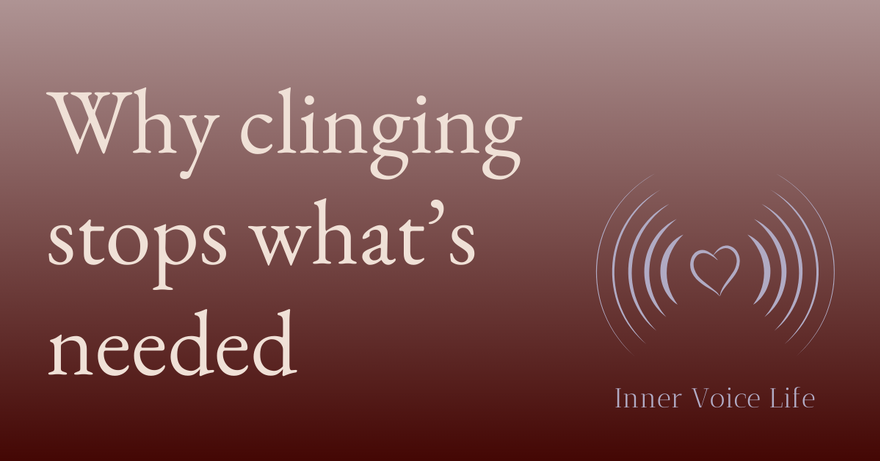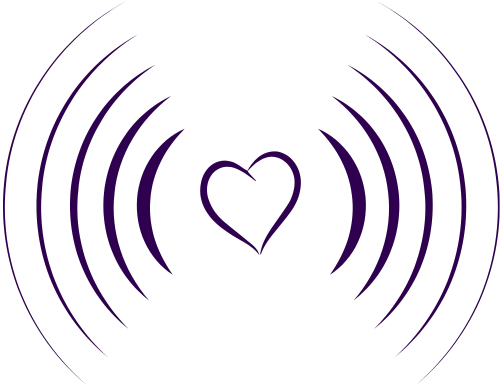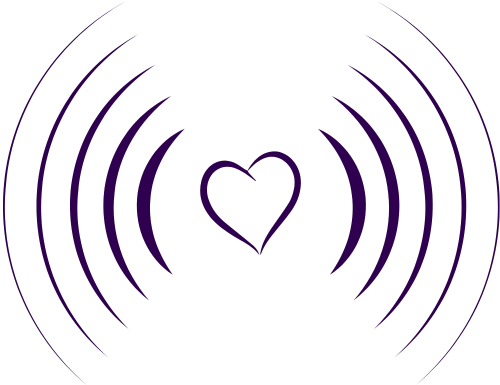Why clinging stops what's needed from coming

I’ve known for a long time that clinging seems to be a blocker from actually receiving the thing you’re clinging to.
Whether that’s watching my daughter years ago as a toddler cling to that ice cream cone (leading to me feeling entirely unmotivated to provide it), or my own clinging to a companion to share life with, I’ve seen over and over, in big and little ways, clinging blocking.
I even made up a little tool, several years ago, that quickly and easily lets me release whatever it is I’m clinging to, reducing pain and enabling a sense of allowing which inevitably leads to more clarity and potentially even that desired whatever-it-is to naturally appear without effort in my world. (Method: Breathe in while “picking up” the desired thing, thinking “I really want this thing”. Breathe out while “letting go” of the desired thing, thinking “I let go of attachment to this thing” — and as you do it, you’re naming whatever you’re attached to. Note that it needs to be a true intention to let go of clinging in order for this to work.)
I don’t quite remember how I came to understand the importance of letting go of attachment, but there are very common and ancient spiritual teachings reminding that suffering comes from attachment (which I’ve read is even a principle within Buddhism).
But what I didn’t understand is why it works this way. Why does clinging stop what’s needed from coming?
That question felt pertinent recently, as there’s been pain coming up due to clinging to wanting human connection after moving to a new town where everyone is a stranger. Each week when I’ve gone to a movement event to explore inner life wordlessly with other humans, this old attachment has been coming up, and more and more clarity has come around it along with some big breakthroughs with letting go. This has led to an urge to dig deeper to uncover the hidden roots of ego and understand how this whole entire contraption of grasping and clinging and neediness that’s caused me so much pain works, in order to be able to (finally!) let go of it.
As I’ve now taken hundreds or even thousands of journeys into the inner realm to explore what’s real and see beyond assumptions commonly held within both myself and humanity, I’ve gotten used to the availability of receiving clear, satisfactory answers to any of my myriads of questions related to human life — even questions that seem obscure, mysterious, or unanswerable. So when there’s a question like this poking at my awareness, I no longer leave it there perpetually unanswered. As I have time, and it emerges to the forefront of my life context, I bring these questions to inner voice with full confidence that the answers will be there.
While many times deep clarity comes in a single session, this one took 3 days, each a 30-60 minute session diving deep into understandings that are needed in order to come to that answer.
Often with questions like these, there’s a need to step back and look at each component.
The first day, the “back up” question was, how can there even be any clinging at all?
To cling to something means there has to be some one who is clinging, but, as I understand from former inner voice conversations, there is only awareness, which doesn’t have the inherent capacity of clinging. That led to a deep dive into the philosophical underpinnings of what is an “I”, a topic I’ve explored before in depth with inner voice but continue, because there are still more questions there. And I’m going to say right here that diving into that now is beyond the scope of this email, but I’m intending to publish all this in my upcoming library. So before I get too into the weeds, I’ll just summarize with saying that awareness itself doesn’t cling, but there is a perception point of awareness (aka a human) that is with distortions and can experience clinging.
The second day, things started to get even more interesting. Rather than starting from my own question, the inner voice directly brought what the session needs to be about: 'Now as this whole conversation is being had, it is with much assumption about even what awareness is, that it is an essence that contains within itself, and yet it is not so.'
Oops, inner voice — I already thought I understood that, but (yet again) the mind completely forgot the most important part:
Love.
Ok, so starting from definitions, awareness is the ability to know or perceive anything.
And in a grammatical analogy (which I so love, grammar geek that this human is), ‘it is as if love is before this sentence. Awareness is the subject, and then there are these many objects that may follow, creating these experiences of what this love is.’
So basically, the meaning of life in a sentence.
Love holds it all.
By the end of the second session, there was enough understanding of how awareness works in a way that can lead to the experience of clinging, to proceed back to the original question: Why does clinging stop what’s needed from coming?
Which then requires a definition: what is clinging?
Clinging is ‘grasping on to what it imagines is not available in order to attempt to get what this one, that it is seeing as separate, needs.’
Based on this definition, it’s clear that something must be not available in order to cling. For example there’s no clinging to be able to breathe when you’re in a normal earth environment, but if you get trapped underwater, lots of humans panic (heading into fear and shutting down awareness) and thereby drown, while others remain calm, in a sense of allowing, and thereby knowing each next action that’s needed in order to arise to the surface, where air is plentiful.
Another cool understanding that came is that there is a spectrum of clinging and allowing. The more there is a complete clinging to it, the less there is a capacity to receive it. As the human is more and more allowing, there’s a knowing of the next step that is needed, and what it needs flows to it easily. Conversely, the more that one is clinging, there is a sense of shutting down, as if banging the head on the unyielding door, demanding it to open, without much capacity or intelligence to find the way that is available.
I’ve experienced this all many times, and maybe you have too? A sense that while you’re really, really wanting that thing that seems impossible, you can see no path to it, so you just stay in pain because [the pain body story is that] God/the universe/life isn’t bringing you what you need?
So it’s really that receiving what’s needed is a natural occurrence of life. When you’re in a state of allowing life to flow through you, there’s a sense of internal direction that can feel like a knowing what’s next.
But when you’re clinging, you don’t see what’s available. You can't even see it, because the awareness that is the ability to see and perceive doesn’t have the true capacity of clinging, so the more you’re clinging, the less you’re perceiving.
I actually can’t count how many times I’ve observed my daughter demanding something while I’m attempting to patiently explain it to her, while she’s simultaneously shutting her ears, speaking louder, refusing to hear a positive answer or pretending not to hear it. Because the actual abundant availability of what you need isn’t the story the mind in pain-body mode wants to hear.
That’s because love, and the abundance that results from love, is out of the control of the mind. To stay in control, we cling.
As we cling, we reduce our ability to perceive.
And since we no longer perceive what’s available, we don’t take actions to access what we need.
Leading to, what we need, as we cling, we don’t receive.
Ok, so, not to leave this on a downer, it might be best to include some next steps.
First, and most obvious, let go of that attachment, using the tool I mentioned at the beginning of this email, or any way that works for you to release that.
But when you can’t or don’t have the willpower to do that, then choose that freeway (see my posts from 2 weeks ago and last week). When you can't choose beyond the attachment, choosing to be in attachment leads to more sovereignty and allowing, because you're no longer denying what is. It enables some relaxation and brings more awareness into your experience, and this opens more space for further letting go when you’re ready.
An important caveat: there could be a very big disparity between what your mind imagines you need and what your being knows you need. Clinging can actually be to something that isn’t what your soul is ultimately choosing, and what you actually need is very different. So pretend letting go of attachment in order to eventually get what you're clinging to isn't going to work. The letting go has to be for real.
An inner voice gem
If humans knew what it meant that WE are in love, their experience of life would be profoundly richer and deeper and different. It means that this is all we are and where we are, and that the WE includes the human — and WE are here having an experience of love.
Subscribe to read more like this
Sign up to receive my content in your email inbox. Look for my emails every other Saturday. 😊

 Inner Voice Life
Inner Voice Life
0 comments
Leave a comment
Please log in or register to post a comment